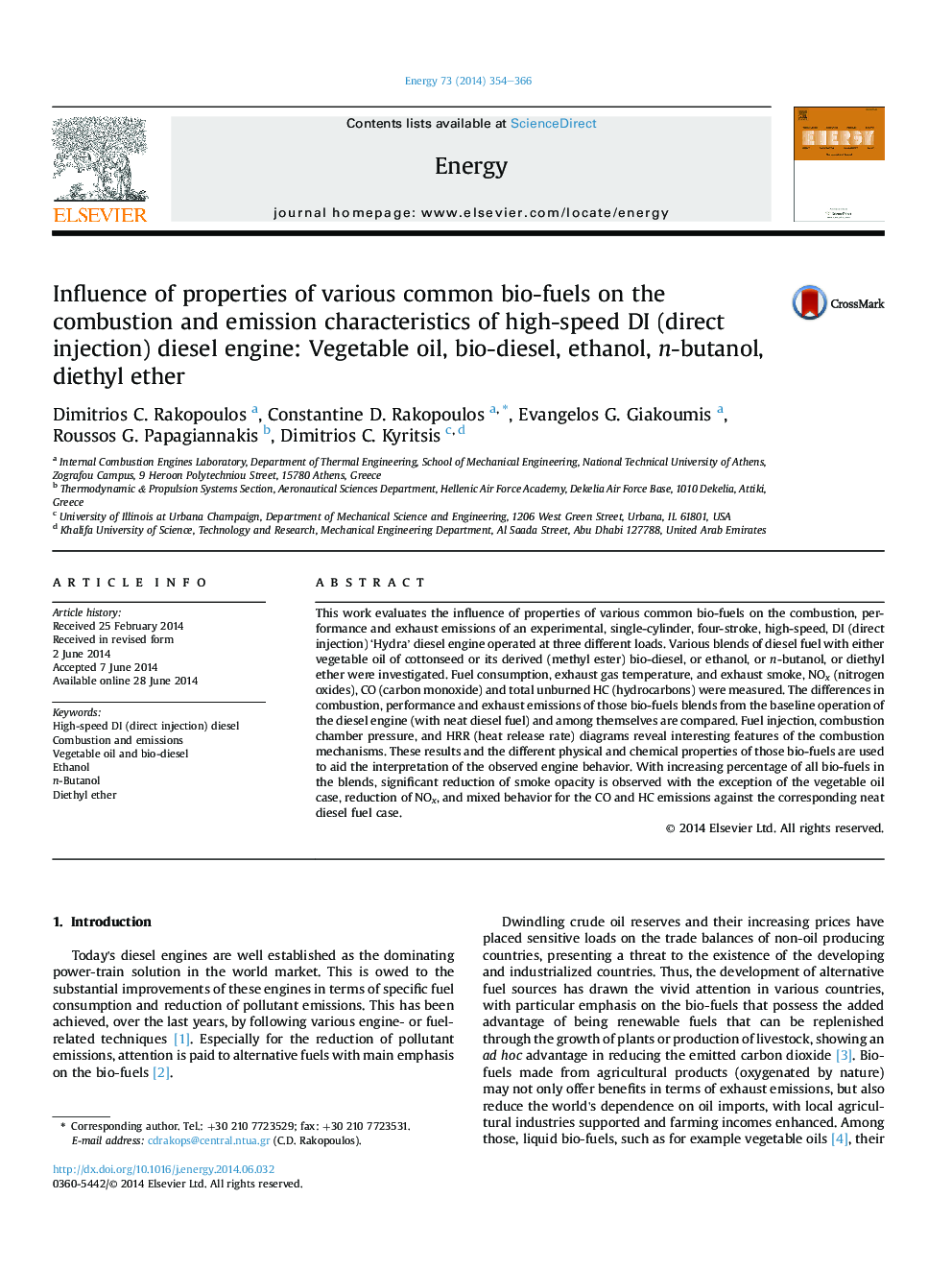| Article ID | Journal | Published Year | Pages | File Type |
|---|---|---|---|---|
| 8077019 | Energy | 2014 | 13 Pages |
Abstract
This work evaluates the influence of properties of various common bio-fuels on the combustion, performance and exhaust emissions of an experimental, single-cylinder, four-stroke, high-speed, DI (direct injection) 'Hydra' diesel engine operated at three different loads. Various blends of diesel fuel with either vegetable oil of cottonseed or its derived (methyl ester) bio-diesel, or ethanol, or n-butanol, or diethyl ether were investigated. Fuel consumption, exhaust gas temperature, and exhaust smoke, NOx (nitrogen oxides), CO (carbon monoxide) and total unburned HC (hydrocarbons) were measured. The differences in combustion, performance and exhaust emissions of those bio-fuels blends from the baseline operation of the diesel engine (with neat diesel fuel) and among themselves are compared. Fuel injection, combustion chamber pressure, and HRR (heat release rate) diagrams reveal interesting features of the combustion mechanisms. These results and the different physical and chemical properties of those bio-fuels are used to aid the interpretation of the observed engine behavior. With increasing percentage of all bio-fuels in the blends, significant reduction of smoke opacity is observed with the exception of the vegetable oil case, reduction of NOx, and mixed behavior for the CO and HC emissions against the corresponding neat diesel fuel case.
Related Topics
Physical Sciences and Engineering
Energy
Energy (General)
Authors
Dimitrios C. Rakopoulos, Constantine D. Rakopoulos, Evangelos G. Giakoumis, Roussos G. Papagiannakis, Dimitrios C. Kyritsis,
